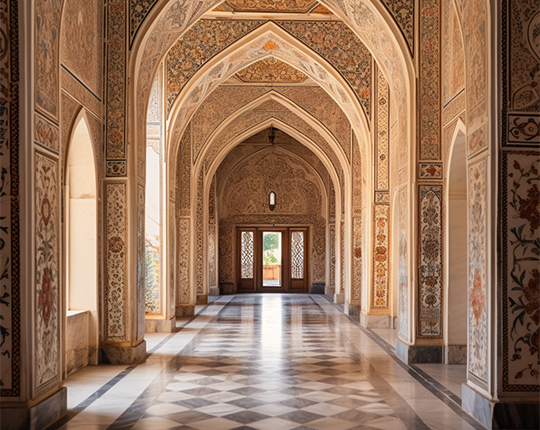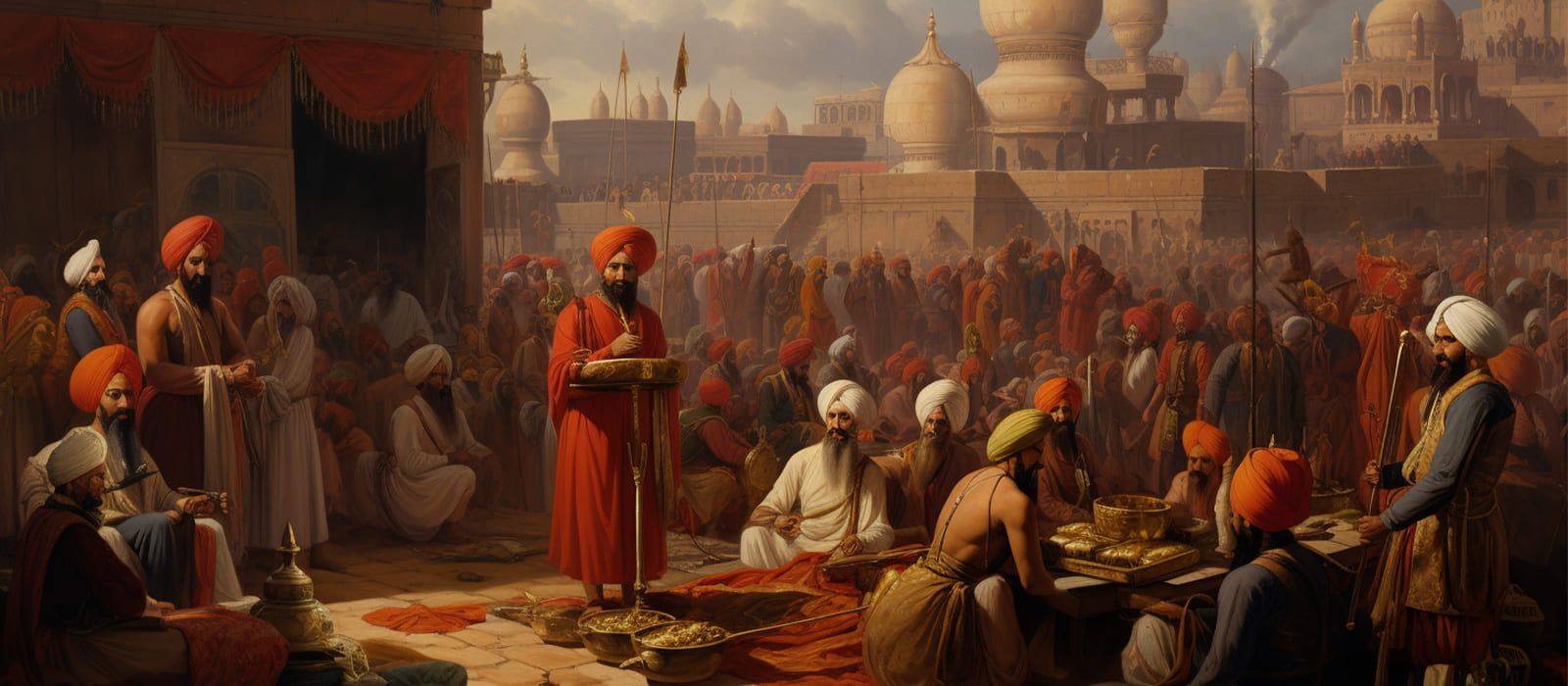Maharaja Ranjit Singh’s Participation in Global Affairs
Maharaja Ranjit Singh, who was a strong leader of the Sikh Empire, mainly concentrated on managing his large kingdom in South Asia.
- From 1801 to 1839, while he was in charge, big changes were happening in the world.
- Ranjit Singh understood these changes well and adjusted his strategies accordingly.
- Even though he wasn’t directly involved in global events, he paid attention to what was happening beyond his borders.
Maharaja Ranjit Singh’s diplomatic engagements stretched beyond the borders of his empire.
Although direct interaction with European nations was limited, the ripple effects of European imperialism and power struggles had indirect consequences on his realm.
One notable aspect of his global participation was the strategic alliances he forged, both regionally and internationally.
Maharaja Ranjit Singh understood the importance of maintaining stability in his neighborhood.
Therefore, he strategically aligned with key powers to secure the borders of his empire.
While he didn’t directly engage with European powers.
Trade was another factor in Maharaja Ranjit Singh’s thinking about the world.
The Sikh Empire was in a spot where Central and South Asia met, making it a place where trade routes connected different areas.
This movement of goods and ideas led to a wider exchange, indirectly connecting Maharaja Ranjit Singh’s kingdom to the global economic network.

Maharaja Ranjit Singh’s engagement with global affairs was not confined to political and economic considerations.
Ranjit Singh’s belief in respecting all religions and including everyone aligned with a worldwide idea of harmony among different communities.
Even though he didn’t have many direct dealings with global religious organizations.
His policies showed a universal approach that went beyond just his local area.
While Maharaja Ranjit Singh may not have been as directly involved in global affairs as some other leaders of his time, his smart strategies, diplomatic interactions, and placing his empire at a crossroads of various influences showed he understood the bigger picture of the world around him.
